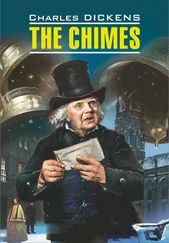True to its name, it is a cell. A room meant for nothing but to hold a person and an instrument. A place for seclusion and meditation. For stripping away everything but music.
Lucien has looked up again. He’s listening intent to the room. Then he rises and goes over to a precise spot on the right-hand side. He feels with his hands and then he laughs. There’s not much humour in it, but it’s a laugh and I’m thankful.
‘Look. Here!’ he says to me, and I go to him.
Carved into the wood where he points are a cluster of notes.
‘It’s my name. It’s the cell where I domiciled as a novice.’ He looks over at Sonja and she nods, almost shy.
‘That’s what made me think of it,’ she says. ‘I realised that you would have left by the tunnels. And the same tunnels will take us to the campanile, to the instrument’s tower.’
I go to look out of the window. We’re just barely above the ground level and the clear, thick para looks out over a long slope of grass not much above eye level. The block we are in forms one side of an eight-sided, watching shape. The lawn rises gently. In the middle is a cobbled square. And in the centre, the hub around which everything gathers, is the structure that houses the Carillon.
I turn away. Lucien is sitting again.
‘How did you get in here?’ he asks. ‘Why isn’t it in use?’
‘This row was decommissioned after your death. It was too old, they said, and the new block was nearing completion. But I really think that they were scared of the infection.’ She smiles. ‘It was a waste, as the practice console in this room is in perfect condition. I had a key made after your death,’ she says. ‘It wasn’t hard to do.’
‘Why did you need the key?’
Sonja stands straight beside the soundproofed wall. She is talking only to Lucien now.
‘Do you know, I used to feel so sorry for you. Because however clear you could hear it, you’d never see the gardens. The way they plant them so the textures and colours of the flowers and trees all speak together. Nobody else would probably ever admit that to you. “Blind of eye is true of ear” and mothers pray for children with milky eyes, after all. But I was always glad that I could see.’ She pauses, leans back a little.
‘They ignored me. Not just the magisters in the Orkestrum, but Mother and Father when we were growing up. I didn’t blame you for it. It wasn’t your fault, and you were special, of course. Destined for great things.’ She pauses, the hesitation of somebody not accustomed to sharing thought. ‘As long as there was you and me, I didn’t care much about them.
‘After you died, they continued to ignore me. It suited me by then, though. They ignored me, so I ignored them. The less attention anyone paid me, the more time I had.’
‘For what?’
A slight halt from Sonja. She is letting him in on something very private.
‘For practice.’
‘What do you mean? Why practise here, away from everything? Why not in the Orkestrum?’
She looks hard at him and I see a glint of pride. She does not answer his question straight away.
‘I wasn’t born with your gift. But I knew that I wanted it. And I had something you never had, brother.’
‘What?’ says Lucien.
‘Perseverance. I know how to work. I’m not afraid of my lack of gift. I wasn’t called to be a novice. When I got over that, it struck me. What was there to stop me teaching myself what they would learn?’ She straightens her shoulders.
Lucien nods. ‘You mean you followed their training? Meditation? Composition?’
‘Yes. And the instruments. I taught myself the viol and the bass. Then brass. I learnt the trompet and the slip horn. I wake two hours before the Orkestrum for meditation. It’s hard.’
She closes her eyes. She is thinking how useless words are to explain what the endeavour makes her feel. But it’s plainly visible. She is lit from within. A dread certainty and humility shines along her cheekbones. Along with a fear that something, someone will take it from her.
Lucien nods again, not smiling, not saying anything.
She stands and walks to the door in the opposite wall, opens it and goes through and lights a lantern. Lucien and I follow behind. It is another soundproofed chamber twice as large as the outer room. On the left and right sides of the wall, hung by turned wooden pegs, are instruments. A heavy maple cello. A lute. A bass viol leaning roundbellied in the corner. The military lines of brass trompet and slip horn shine up high above the strings. There is a transverse flute of silver. A clarionet neat in black and gold.
Taking up the whole front wall is a huge klavier. At least, it looks to me at first like a klavier. But instead of a single keyboard, it has seven, one on top of each other, ranked in terraces. On either side of these are neat rows of wooden pegs with rounded handles that jut out of the instrument’s flat sides. Beneath the piano stool are pedals, dozens of them, and then another keyboard at foot level, made of slim, long levers of light and dark wood.
Sonja walks toward it. She takes a cloth from a pocket and polishes the keyboards. She does it with pride and deference. I know that she is watching Lucien, waiting for his reaction. Her movements have changed again. The precision has lost its sharpness and returned as grace. It’s too bright for Lucien to see, I realise, and I am unsure how much detail he is able to hear.
Sonja solves this problem by sitting at the stool. She reaches to the side of the instrument and makes a series of adjustments to the mechanism there. Then she places her hands on the central keyboard. The instrument is so large it seems to swallow her.
A second’s pause and then a muted miracle of voices springs up. Her hands play clustered chords and her feet too, moving deft over the lower pedals like a dancer. It is a simple Bach prelude. Halfway through, she changes the stops and the plain voices are joined and sustained by throaty woodwinds. The simple melody doubles and twists like a wonderful heavy rope of gold.
At the end she sits back, her hands still alive and alert on the keyboard. She doesn’t look away, but every part of her is listening for Lucien’s response.
If only she could see him, it would feed whatever she is hungry for. Lucien’s face is wide in wonder.
He walks forward to stand beside her. ‘May I?’ he asks. Sonja nods. He places his hand carefully on the upper keyboards, runs his fingertips over the drawerknobs to left and right.
Sonja takes Lucien’s hands and places them in the correct configuration on the central keyboard. With efficient movements she lowers the stool for him. He sits and his attitude is one of reserve, almost constraint. His head is bent and he listens close to what Sonja is telling him.
In undertaking to learn, to teach herself the skill reserved only for the Order’s elect, Sonja has done something I would have never thought possible: she has surprised her brother.There is nothing much for me to do but sit and watch and be silent. The room has filled with a buzz of excitement and concentration that rises off the pair of them and threads through the honeycomb of the wall’s carving.
Sonja is blinking fast. She has dragged a chair in to sit next to Lucien at the stool. He plays an experimental scale. She flexes her fingers back, elbows him out of the way, demonstrates something. Lucien nods twice, replaces his hands on the instrument, repeats a phrase. ‘Like this?’
Sonja has turned the bellows off now, so the instrument does not sound, but it is clear that for the two of them, there is no impediment to the music. In their heads, it is as clear as a bell and echoing into the soundproofed chamber.
‘Yes, that’s it,’ says Sonja.
Читать дальше


![Чарльз Диккенс - Колокола [The Chimes]](/books/395589/charlz-dikkens-kolokola-the-chimes-thumb.webp)









